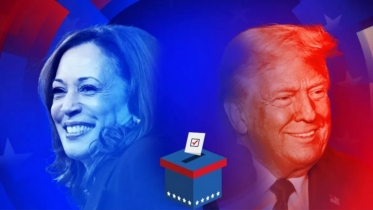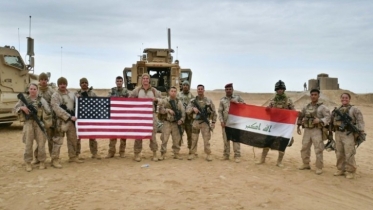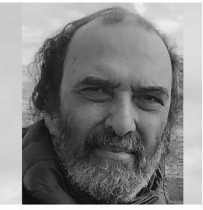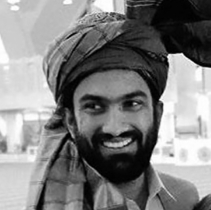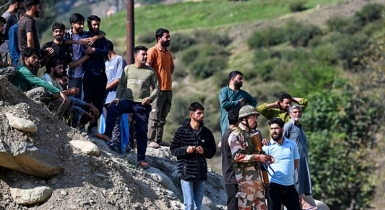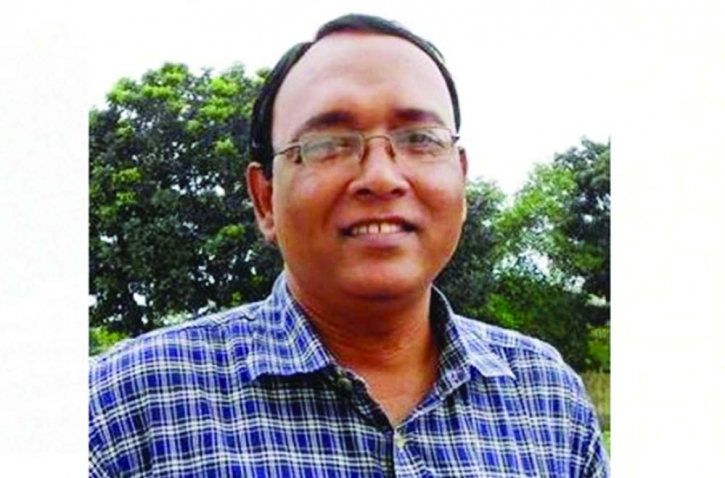
General Secretary of Bangladesh Awami League Obaidul Quader said, "Tariq Rahman is a convicted criminal, corrupt, murder, terrorism, arms smuggling, arson terrorist, August 21st grenade attack, money laundering and sentenced for these reasons. This convicted accused is harming his party by relying on it. Tariq Rahman is being steered into the party, which the ordinary people will never accept. Tariq Rahman is the champion of Bangladesh's corruption, terrorist activities, women's scandals, education, and mischief in all fields. BNP, top to bottom, everyone is corrupt. He also mentioned that Tariq Rahman has been sentenced in arms and corruption cases. Now, he has to be brought back to the country and punished; the Prime Minister has said that”.
Obaidul Quader said, "These color thieves in Bangladesh do not respect the country's democracy, liberation war, values ??and ideals of liberation war." They swallowed democracy and led the country to the brink of destruction through looting. Bangabandhu's daughter, Sheikh Hasina, rescued Bangladesh from darkness. She has brought back the success of the progress of democracy, the progress of the economy, and the progress of the liberation war. How was Bangladesh 15 years ago? How was the economy of Bangladesh? How has Bangladesh been 15 years later? We have mistakes. Our Prime Minister has said that we will learn from past mistakes”. When the Awami League formed the government in January, many BNP leaders predicted it would not last three months; now, everyone will have to wait a little longer to see what their major midnight reshuffle proves. Is this a turnaround as part of their party's restructuring process, or is it a temporary solution to the conflict that has erupted in the BNP with committees at various levels? The dual rule process in BNP is not new. As long as Khaleda Zia was active in politics and out of jail, no one had said anything publicly about these issues, and perhaps no one dared to say anything.
Now, the situation is changing day by day. Once everyone accepted Khaleda Zia's decision. But the problem started from the day dualism began in the party; anger and discomfort grew among everyone, even among the leaders and workers. Many of the leaders of the BNP are saying or trying to say about the dual rule process, and this reshuffle has been brought to different levels of BNP leadership because of the failure of the anti-government movement. But that change could happen during the day. Many people question whether the leaders must take responsibility for the movement's failure or whether the responsibility falls on the top leadership.
Even if the movement is successful, the credit belongs to all the leaders and workers of the party. Still, even if the movement fails, it is the responsibility of all the leaders and workers. Before the election, the leadership of the BNP did not leave any option in conducting the movement. They have protested with one point in front. Elections should be held under a non-partisan government. The Awami League government must resign before the elections. Prime Minister Sheikh Hasina has won twice in this one-phase movement. BNP leaders thought, if Prime Minister Sheikh Hasina can do it, why can't they? But Awami League People's Party, the way the people were able to unite all political parties against BNP, BNP was able to do that? In a word, it could not.
Awami League has led all the democratic movements in this country, made it independent, and given prosperity to the country, so it is not easy to move against the Awami League. As the government had the will for a fair and credible election, it had the support of the people, so it happened. 62 independent candidates have passed the ample proof that the election was fair and impartial. Many of them were elected by losing the Awami League candidate. However, the people did not understand that BNP had come to the streets to fulfill any demand. They could not present their detailed plans for the election to the people. A section of BNP leaders thought that the ambassador to the United States, Peter Haas, would come and elect a non-partisan government. Observers believe that the speech of US officials and diplomats made them overly optimistic. Seeing the restructuring process of BNP, people feel that they are less worried about the country's internal problems and more about the foreign affairs committee. Two large committees have been formed: the BNP Chairperson's Foreign Affairs Advisory Committee and the Special Assistant to the Chairperson's Foreign Affairs Advisory Committee.
The first committee has 11 members, including Tariq Rahman, and the second has 18. This reorganization is said to have been necessary because the previous committee on foreign affairs could not establish good relations with big countries. Before the elections, BNP leaders said the government could not hold elections without the BNP. Before that, the government will fall. However, the government held the election despite the BNP's opposition. The election had to be held according to the country's constitution. The leaders of the BNP, who thought of changing the course of politics with the help of foreign powers, came and settled a new account with the Awami League government.
Is this breakdown of the BNP committee and the change of responsibilities of the leaders a standard process or a prediction of the storm? The responsible leaders of the BNP point out that it is the coordination of the party leadership. We have to wait a few more days to see how this combination of BNP leadership will make the party more integrated and movement-oriented. Where is the strength of BNP? Not in the leadership, not in the grassroots leaders and workers? So where is the hope? The party has been out of power for 17 years. BNP leaders feel they cannot hold party conferences in a hostile environment; the last meeting was held in 2016.
Is there democracy within the BNP party? This is the question of all political circles. Here, the qualified leaders are ignored; the observers also think that it is essential to establish democracy within the party first. But time will tell how much space democracy can gain in the party in the process of dual rule. Once the conference was held after a certain period, was the leadership elected by the vote of the councilors? Everything wouldn't have Been according to the instructions above. Leaders have committees in their pockets. Once, Chhatra Dal and Juba Dal were the main strength of BNP. Especially during Ershad's military regime, Chhatra Dal was dominant in student parliament elections of universities and colleges.
Bangladesh Chhatra League had to win in DUCSU under the banner of All Party Chhatra Sangam Parishad with the help of Chhatra Union, Jatiya Chhatra League, and JSD Chhatra League. Chhatra Dal won single-handedly. However, in the DUCSU election held in 2019, Chhatra Dal's position was far behind. What is the reason for this? Chhatra Dal is not able to attract newcomers, especially the new generation. Complaints often hear that the Chhatra Dal committee is formed with old boys or married people. Committees are formed with those who have joined Chhatra Dal for family reasons or are brought forward to lead.
Due to the plight of the Chhatra Dal, the Juba Dal also could not come to a solid organizational position. In our country, once upon a time, professional organizations used to run with individuality. Regardless of political affiliation, the professionals gave priority to professional matters. He used to agitate with demands. But now, professional organizations are more concerned with party politics than professional matters. Most professional organizations are divided due to political reasons such as journalists' unions. The predecessors formed this organization with the intention of establishing the professional rights of journalists. Until Ershad's regime, all journalists worked under the banner of one organization. After 90, they were divided into Awami League and BNP camps. Similarly, organizations of teachers, lawyers, doctors, agriculturists, and engineers, either split or party forums, became more important than the leading organization.
Khaleda Zia and Tariq Rahman have repeatedly proved that they are not doing politics for the country's people but for the greed of power. During their rule, militancy and terrorism became rampant in the country due to Tariq. At present, the people of Bangladesh want a peaceful Bangladesh, a champion of corruption, and the ordinary people do not want a Bangladesh that is a country of terror. Now, the people of Bangladesh want Smart Bangladesh. Bangladesh Awami League government is moving forward with a new concept called Smart Bangladesh after Digital Bangladesh.
After Digital Bangladesh, the Smart Bangladesh plan is the most important and visionary decision of this century because developed countries have already transformed into smart countries. Even many developing countries have gone a long way towards becoming smart countries, so if a country's progress is to be maintained, it must be in the developed world.
In the future, the countries that are ahead in the use of technology will be able to create the most favorable conditions in terms of trade, international transactions, and communication. A century and a half ago, the present government took up the plan of Digital Bangladesh like Smart Bangladesh, the hundred percent success of which is visible now. BNP, which has been out of power for a long time, has become desperate to oust the government. So, the country has been struggling for the past few months. A circle is trying to hit remittances sent by expatriates, one of the driving forces of the country's economy, which is led by fugitive leaders abroad. Various world countries have appointed a pro-BNP circle to prevent illegal remittances.
The party has also formed a Hundi cell in exchange for the commission; the matter has come up in media reports. The biggest obstacle in the flow of remittances from abroad to the country is the violence of the hundi traders. The hundi business is mainly led by the fugitive leaders of BNP abroad. This syndicate dominates several countries, including Malaysia, Singapore, the United Arab Emirates, and Saudi Arabia. It is known that the members of that cell encouraged ordinary expatriates to send money to Hundi by misleading them with various rumors and wrong information. A large commission is also given by the party. Meanwhile, London BNP leaders have taken control of the Europe-centric syndicate, and Malaysian BNP leaders have a vast syndicate of hundi.
There is a massive establishment of BNP leaders in Singapore. Some BNP leaders went there to collect Hundi's commission in that office in Singapore. And Middle Eastern countries, including Saudi-Dubai, are dominated by anti-liberation forces. Experts say that hundi can cause a lot of damage to a country's economy. So, the country's remittance process should be freed from that process as soon as possible. Remittance flows should be increased through legitimate channels to boost the country's economy. Everyone must transact money legally to get government incentives and benefits and distribute their money fairly. Drugs lead to corruption, militancy, and terrorism. Let our society get rid of it. We want public representatives to take special care to create awareness among the people and take the country forward.
Hiren Pandit is an essayist, researcher, and columnist.

